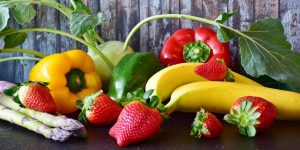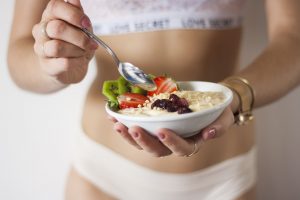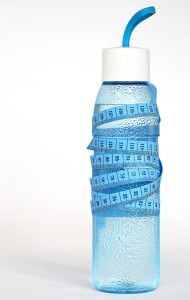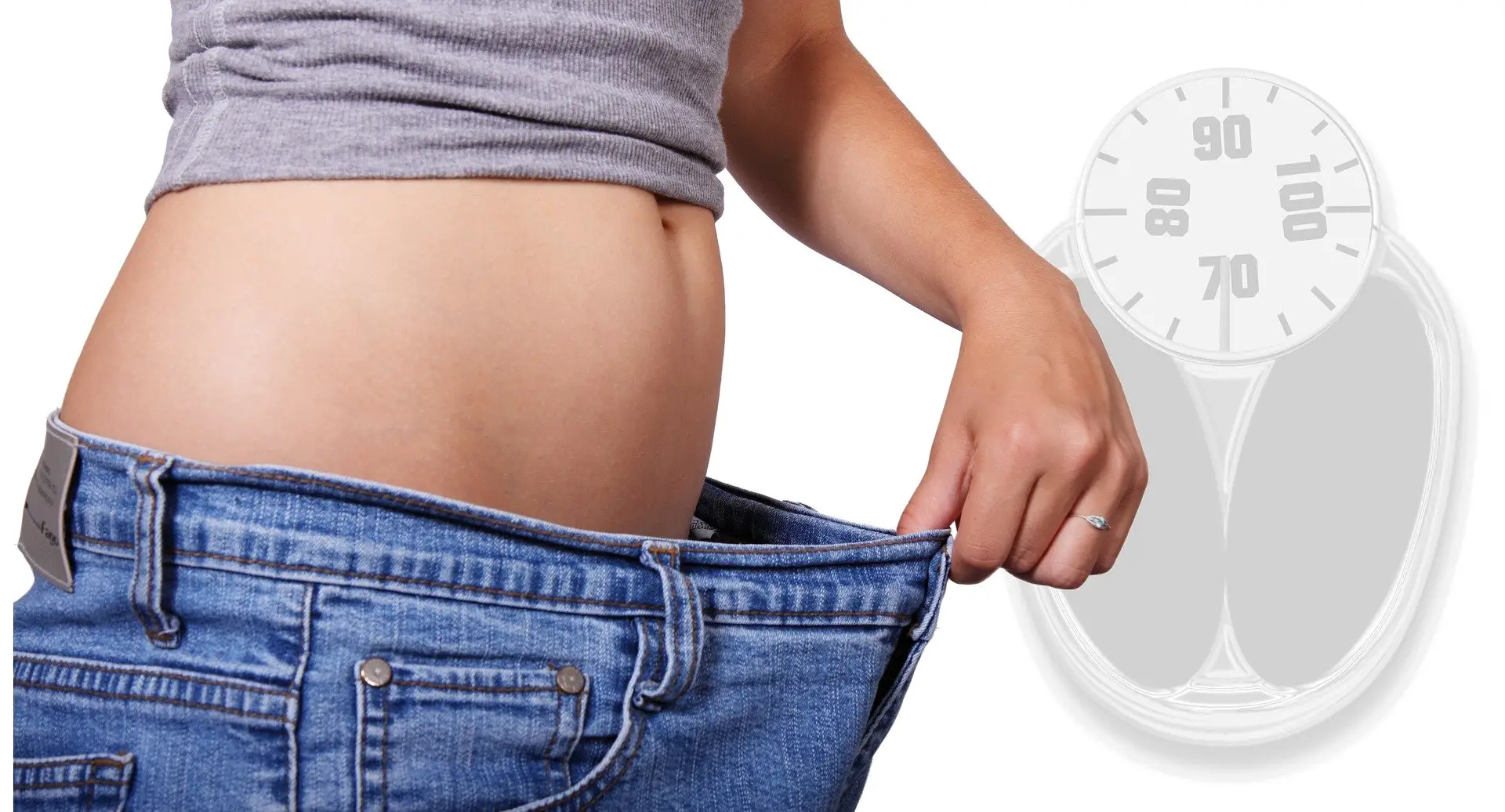Best Vegan Diet for Weight Loss
While there are a lot of reasons for becoming a vegan and following a strictly vegan diet, one reason that attracts people is weight loss. But if you look around, you might not find all vegans to be fit. So what is the best vegan diet for weight loss?

It’s true that one of the core benefits of going vegan is losing all that extra weight, but that’s not always the case. There’s a difference between just a vegan diet and a vegan diet that’s truly a whole-food, plant-based diet. If you’re trying to shed those extra pounds, that’s the diet you need to follow.
Obesity is still ravaging in the US, with most age groups having upwards of 40 percent population in the overweight and obese category. Could a vegan diet solve that problem?
How Can Vegan Diet Help with Weight Loss?
We’re no stranger to the fact that the vegan diet is touted as one of the best ways to lose weight and maintain a healthy body mass index (BMI). But you need to understand the science behind that to really understand why and how it may lead to weight loss.
There have been countless studies on the effects of a vegan diet on weight, so it’s not hard to find some cold hard evidence.
Here are some of the reasons why a vegan diet is great for weight loss:
No Animal or Processed Foods
First thing’s first, a vegan diet eliminates animal products and processed foods (however, that last one can still creep in). This has a significant impact on your health and your BMI.
Think about it; if you’re a non-vegan person consuming animal products, you’re most likely consuming a lot of processed meat. Meat, especially red meat, in itself is a threat to health, but when processed, it only gets worse.
A vegan diet that focuses on whole plant-based foods does not carry any such health risks, which include hypertension, high cholesterol, and, of course, heart disease.
A comparative study from Nutrition, studying the effects of five different diets on weight loss, found that those consuming a purely vegan diet had the highest weight loss. The other diets were vegetarian, semi-vegetarian, pesco-vegetarian, and omnivorous diets. The participants following the vegan diet also saw the highest decrease in their saturated and total fats.
No Fats/Oil
As soon as you start eating vegan foods, your fat and oil consumption drops. Since this diet eliminates animal products and dairy, your overall fat intake drops dramatically. On top of that, a vegan diet also cuts down on oil. Yes, vegetable oils are still vegan, but very little use is encouraged.

Obviously, if you’re trying to lose weight, you can go completely oil-less. Even olive oil or sunflower oil is out the door for those strictly following a whole-food plant-based no-oil diet. With fat out of the picture, you can lose weight quickly.
Speaking of fat, the fat in vegetables that you would be getting is actually good for weight loss. A very interesting study conducted in Italy and published in Nutrients found that vegetable fats were linked with high resting energy. In other words, you burn more calories just by resting and sleeping.
It’s really simple as when you don’t have fat in your meals, your body turns to the stored fat for energy. That speeds up the fat loss process.
High Fiber
Fiber gets all the attention when it comes to digestive health but isn’t spoken of much when it comes to weight loss. It’s actually quite beneficial for several reasons:
- Fiber is like an anti-carb as it helps balances the carb content of the food.
- It can help regulate blood sugar and insulin level, and that prevents your body from storing fat.
- It also keeps you filled for longer, so you don’t have unnecessary cravings, thus sparing you from any extra calories.
A vegan diet that focuses on whole foods delivers high fiber content, which, in turn, helps you keep a healthy weight.
Fiber also makes sure that following vegan doesn’t equate to starving. You’re eating the number of calories you need. You’re getting the nutrients you need. However, those calories and nutrients are not adding to your fat, rather helping burn it.
Low Caloric Density
This is an important one, as it encompasses several benefits of plant-based diets, including the vegan diet. Low caloric density or low-calorie density means foods deliver more nutrients than they do calories. So plant-based foods don’t give you empty calories, rather fewer nutrient-rich calories that don’t make you fat.

NutritionFacts’ Dr. Michael Greger attributed low caloric density, as well as some other characteristics of a whole-food plant-based diet for its profound effect on weight loss. He explains in his article how the intact structure of the food helps reduce calories and deliver necessary nutrients to your body.
The opposite of that is high caloric foods, which can result in weight gain. A vegan diet reduces such foods but doesn’t necessarily eliminate them. So it really comes down to the choices you’re making with your grocery list.
Even if you do consume high-calorie density plant-based foods, you won’t do yourself any harm, as they are typically healthy.
Is it Healthy to Lose Weight with a Vegan Diet?
When it comes to losing weight or even maintaining a healthy weight, there’s a fine line between what is a healthy way and the unhealthy way. In other words, while you can achieve weight loss through various diets, the diet may not necessarily be healthful.
With so many diets, including the vegan diet, on the table, it can get confusing. Also, those who are desperately trying to shed some pounds pay little attention to the health part. They simply want to get fit.
As far as the best vegan diet for weight loss is concerned, it’s overall healthful. However, you have to ensure best practices to make it healthy. It’s very much possible to keep it healthy while also losing extra fat and bringing down your BMI.
You also have to watch out for some of the negatives of the diet, which can seep in easily if you’re not too careful. Make sure that you’re getting ample Vitamin B12, either through fortified foods or supplements.
Also, ensure you’re getting ample plant-based protein to meet your needs. Protein can be beneficial in your quest to lose weight.
How Much Weight Can You Lose on a Vegan Diet?
This is a difficult question to answer, but if you’re looking for some context, the results of one study will help you understand. A study out of the Journal of General Internal Medicine found that vegans were losing four pounds more than those consuming animal foods.

The amount of weight you lose and the time it takes is very relative. It also depends on where you’re starting. If you have a lot more fat weight, it’s going to take some time to start losing weight considerably. That, too, depends on whether you’re following the best practices and keeping your calorie intake in check.
With that said, the vegan diet is generally quick with weight loss, and you can lose as much as two pounds per week right off the bat.
Tips for Losing Weight with Vegan Diet
The following important tips can pivot your vegan dietary regime towards healthy weight loss. If you follow these best practices, not only will you get your slim waist back but also enjoy the many health benefits this diet has to offer.
Focus on Calorie Density/Nutrient Density
As mentioned before, the importance of caloric density or nutrient density cannot be stressed enough. Ideally, you want to consume foods that are low in calories and high in nutrients. In other words, low-calorie density or high nutrient density foods.
If we’re talking low caloric density, vegetables go to the top of the list, as the pack in more nutrition with fairly fewer calories. Then comes your fruits, which, although are sweet (carbs), don’t contain as many calories as processed carbs.
Avoid or limit foods that have high caloric density, including those that are plant-based. This may include nuts, avocados, seeds, etc.
The benefit of this strategy is that you technically get fewer calories, but ample nutrients to keep you going through the day and also not negatively impact your health.
Add More Fiber
Fiber is your friend when it comes to weight loss, so you need to add more fiber to your meals. Go with high-fiber cereals for breakfast. Eat high-fiber fruits as snacks.

One of the common reasons why people fail to lose weight, regardless of the diet, is constant hunger and cravings. They just can’t keep their hands off food for a long time, which can be problematic for weight loss. Fiber will ensure that you don’t have those untimely cravings and that your regular meals keep you full.
If we’re talking numbers, make sure to get at least 25 grams of fiber per day.
Take the No-Oil Route
While the vegan diet by default reduces the overall intake of oil, if you’re trying to cut down on calories and reduce your weight, you can limit or avoid oil. This includes healthier oils as well, like olive oil, which is actually quite high in calories.
Again, oils have high calorie-density. As a result, even a few tablespoons can add calories to your plate. Those who consume less oily food are generally healthier and have a healthy weight.
Oil once in a while should be fine, say if you’re making one of those recipes that can’t be made without oil. However, overall you want to make dishes that don’t use oil.
Limit or Avoid Processed Vegan Food
This is what makes your vegan diet best for weight loss. Many vegans end up consuming foods that are technically vegan but also highly processed.
Plant-based meat alternatives would fall into this category, so limit those as much as you can. Instead, get your protein fix from whole foods such as beans, legumes, and tofu.
Then you have other processed vegan foods such as non-dairy ice cream and yogurts that are free of animal products but not necessarily a healthy option.
This can be pretty tricky to figure out, especially when you’re shopping for groceries, as the vegan grocery market is ever-growing. Companies tend to label foods as vegan or plant-based, but that doesn’t mean they are not processed. So do your homework and take your time to read labels and nutrition charts carefully.
Don’t Forget Exercise
Diet plays a significant role in weight loss, but to get the optimal benefit, you should combine it with physical activity.

Exercise isn’t just important for losing extra weight, but also for your overall health. You should ensure that you get some kind of physical activity at least three times a week.
It doesn’t have to be too intense or even at the gym. Just go for a run a few days a week or exercise at home with minimal or no equipment. As long as you moving those muscles, you’re going to see very positive results when you step on the scale.
Juice But Don’t Just Juice
Juicing is highly popular for weight loss. However, don’t fall victim to those juice diets that just allow you to drink juices.
Why? You won’t get fiber and also miss out on some of the other essential nutrients.
You can drink juices as they provide the convenience of consuming veggies and fruits, but don’t just juice. Make sure that you’re getting your whole foods as well.
Juicing can help you lose a pound or two quickly, but it’s not a sustainable approach.
Wrap Up
Now that you what makes the best diet for weight loss, you can easily transform your eating habits to match that. The weight loss journey is different for everybody, so it may take some time for you to figure out what works best for you.
Remember, weight loss shouldn’t interfere with your overall health. While losing extra weight is a step towards better overall health, it’s easier to lose track and get stuck with more problems than when you started.











